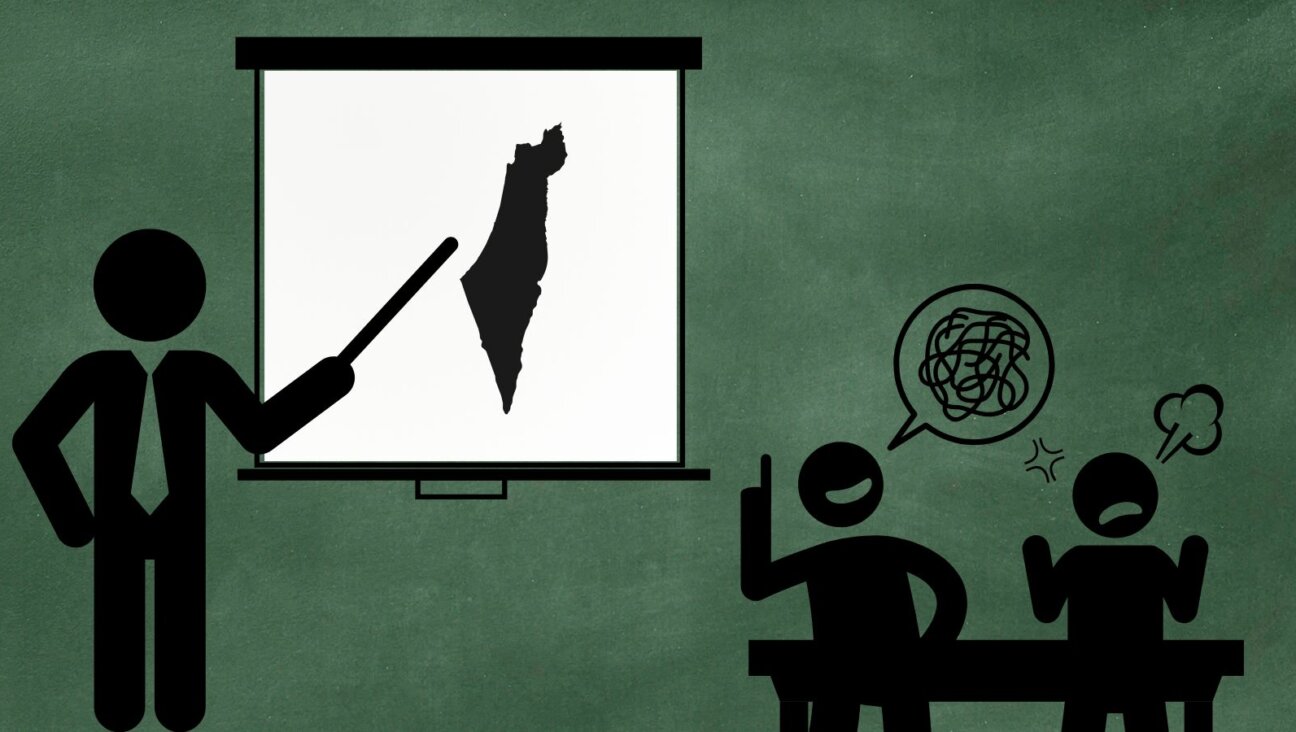Remembering Charlotte Delbo on the 100th Anniversary of Her Birth

One of the Survivors: Playwright and United Nations stenographer Charlotte Delbo was born in 1913 and died in 1986. Image by Eric Schwab
August 10 marks the hundredth anniversary of the birth of the non-Jewish French writer Charlotte Delbo, who was deported to Auschwitz and survived to bear witness. Delbo’s prose and verse writings were reprinted by Yale University Press under the title “Auschwitz and After,” while her plays — including some never previously printed — were recently published by Les Editions Fayard as “Who Will Relate These Words?” Delbo’s sustained rage and will to remember atrocities won her respect from readers far and wide.
The French Jewish war correspondent Jean Hatzfeld praised Delbo as a “writer who proves that the worst destructive forces can never defeat verbal beauty.” In his 2012 memoir of the Khmer Rouge killing fields “The Elimination,” Cambodian documentary filmmaker Rithy Panh wrote: “I wish I’d known her. And filmed her. I would have wished to make a portrait of her. I believe that her presence would have encouraged me.”
Delbo’s vignettes, blank verse and philosophical dramas have been called memoirs, but they are really closer to the impressionistic literary statements by other non-Jewish writers who were imprisoned in concentration camps as enemies of fascism. These include the Spanish-born French-language author Jorge Semprun, the Frenchman Robert Antelme and Poland’s Tadeusz Borowski, courageous writers who suffered lifelong health consequences from the brutal Nazi camp regime, although all were fully aware that their own treatment was relatively easier compared to that which was meted out to Jews and other targeted minorities.
The simple fact that Delbo survived was evidence of this. As she wrote in one poem: “Because I am returning from where no one returned / You think I know things / and you hurry to me / bursting with questions / with your unspeakable questions. / You think I know the answers. / I only know what’s obvious: / Life Death Truth.”
Delbo’s highly dramatic style was honed during her prewar years when she served as secretary to the French actor Louis Jouvet, who had a gift for incarnating metaphors. When Jouvet played a mortally ill character, he could appear to be Death himself onstage. Likewise, Delbo’s writings, whether in poetry or in plays, is powerfully metaphorical, with only one real character — herself as monologist.
In 1943, at the forced-labor camp of Rajsko, an annex of Birkenau and satellite camp of Auschwitz, Delbo decided to stage Molière’s comedy “The Imaginary Invalid.” This production, performed entirely from memory because no text was available, had special irony, since the actors, her fellow non-Jewish women prisoners, had all just barely survived a bout of typhus.
Delbo was fond of Molière’s works, but in practice she may have had more in common with the French author and theorist Antonin Artaud’s pensive theater of cruelty — although for Artaud, “cruelty” was an adamant will to destroy false appearance, not Nazi sadism. As a survivor, Delbo recounted her experiences when immediate life and death issues were over, so her principal challenge, much like Artaud’s, was how to express herself.
In the 1966 title play of “Who Will Relate These Words?” set in a women’s concentration camp, the author compares and contrasts tragic theater and tragic reality. Referring to her fellow prisoners murdered by the Nazis, one of Delbo’s characters asks: “Can we perform a play whose characters died before we got a chance to know them? I did not get a chance to know them either.” The play concludes with a question, in verse, addressed to the spectator: “Why would you believe / these survivor stories / from survivors who return / but cannot explain why?”
Another play by Delbo, “Theory and Practice,” further examines the mysteries of historical destiny, staging a verbal exchange between two Marxist sociologists, the Frenchman Henri Lefebvre and the German-Jewish thinker Herbert Marcuse, in April 1968, amid France’s social upheaval. In Delbo’s 1970 play, “The Court Sentence,” one character implicitly likens Spanish victims of fascism with Europe’s Jews; the 1971 play “And You, What Did You Do?” makes a direct reference to Auschwitz.
After the war, Delbo worked as a stenographer at the newly founded United Nations, where her hopes for unifying humanity and philosophy took public precedence over theater. She was no longer from France; in this respect, she was from Auschwitz. Her writings remained a mostly private activity, in part because philosophical plays were unfashionable, as was the entire subject of the Holocaust in France. Only in the mid-1960s did Delbo start to publish poems and prose. In 1960, she accepted a job as clerical assistant to the same Henri Lefebvre, who later became a character in “Theory and Practice,” at the French National Center for Scientific Research. She retired in 1978 and died of cancer in 1985, with little idea of how her writings, mostly ignored by her contemporaries, would be treasured by later readers for their adamant courage and outspoken faith in the future of humanity, despite tragedies past and present.
Benjamin Ivry writes frequently about the arts for the Forward.
A message from our CEO & publisher Rachel Fishman Feddersen

I hope you appreciated this article. Before you go, I’d like to ask you to please support the Forward’s award-winning, nonprofit journalism during this critical time.
We’ve set a goal to raise $260,000 by December 31. That’s an ambitious goal, but one that will give us the resources we need to invest in the high quality news, opinion, analysis and cultural coverage that isn’t available anywhere else.
If you feel inspired to make an impact, now is the time to give something back. Join us as a member at your most generous level.
— Rachel Fishman Feddersen, Publisher and CEO
























